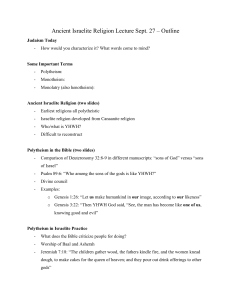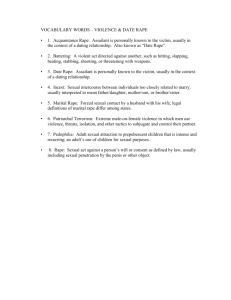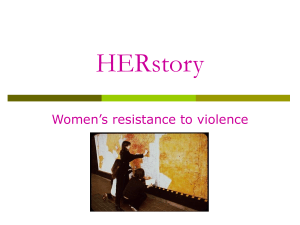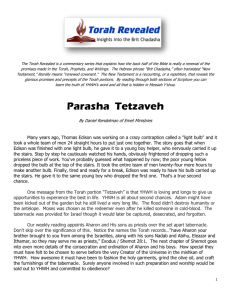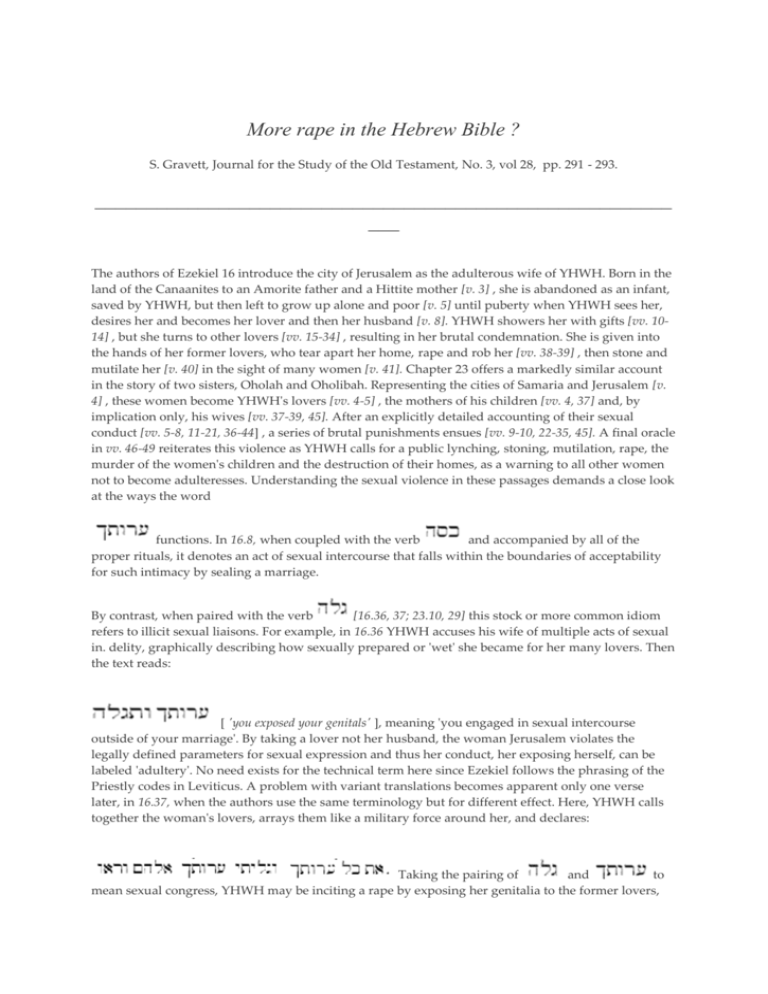
More rape in the Hebrew Bible ?
S. Gravett, Journal for the Study of the Old Testament, No. 3, vol 28, pp. 291 - 293.
________________________________________________________
___
The authors of Ezekiel 16 introduce the city of Jerusalem as the adulterous wife of YHWH. Born in the
land of the Canaanites to an Amorite father and a Hittite mother [v. 3] , she is abandoned as an infant,
saved by YHWH, but then left to grow up alone and poor [v. 5] until puberty when YHWH sees her,
desires her and becomes her lover and then her husband [v. 8]. YHWH showers her with gifts [vv. 1014] , but she turns to other lovers [vv. 15-34] , resulting in her brutal condemnation. She is given into
the hands of her former lovers, who tear apart her home, rape and rob her [vv. 38-39] , then stone and
mutilate her [v. 40] in the sight of many women [v. 41]. Chapter 23 offers a markedly similar account
in the story of two sisters, Oholah and Oholibah. Representing the cities of Samaria and Jerusalem [v.
4] , these women become YHWH's lovers [vv. 4-5] , the mothers of his children [vv. 4, 37] and, by
implication only, his wives [vv. 37-39, 45]. After an explicitly detailed accounting of their sexual
conduct [vv. 5-8, 11-21, 36-44] , a series of brutal punishments ensues [vv. 9-10, 22-35, 45]. A final oracle
in vv. 46-49 reiterates this violence as YHWH calls for a public lynching, stoning, mutilation, rape, the
murder of the women's children and the destruction of their homes, as a warning to all other women
not to become adulteresses. Understanding the sexual violence in these passages demands a close look
at the ways the word
functions. In 16.8, when coupled with the verb
and accompanied by all of the
proper rituals, it denotes an act of sexual intercourse that falls within the boundaries of acceptability
for such intimacy by sealing a marriage.
By contrast, when paired with the verb
[16.36, 37; 23.10, 29] this stock or more common idiom
refers to illicit sexual liaisons. For example, in 16.36 YHWH accuses his wife of multiple acts of sexual
in. delity, graphically describing how sexually prepared or 'wet' she became for her many lovers. Then
the text reads:
[ 'you exposed your genitals' ], meaning 'you engaged in sexual intercourse
outside of your marriage'. By taking a lover not her husband, the woman Jerusalem violates the
legally defined parameters for sexual expression and thus her conduct, her exposing herself, can be
labeled 'adultery'. No need exists for the technical term here since Ezekiel follows the phrasing of the
Priestly codes in Leviticus. A problem with variant translations becomes apparent only one verse
later, in 16.37, when the authors use the same terminology but for different effect. Here, YHWH calls
together the woman's lovers, arrays them like a military force around her, and declares:
Taking the pairing of
and
to
mean sexual congress, YHWH may be inciting a rape by exposing her genitalia to the former lovers,
that is, by making her sexually available to them. The men respond by 'seeing' her nakedness, a phrase
used in Lev. 20.17 to indicate incestual [ marital ? ] relations, and in Gen. 9.22 and Lam. 1.8 to speak of
actions that can be read sexually. Occurring in situations indicating force, the phrase here indicates
that her husband and former lovers trap her much like an army laying siege to a city or a mob
preparing for a lynching.
The third masculine plural ending on the preposition
as well as the use of
in the
third masculine plural, suggests more than one man took part in the attack and indicates the assault
was a gang rape. This reading corresponds with the events narrated in Ezek. 23.10 and 23.29. Ezekiel
23.9-10 describes the punishment of Oholah or Samaria by YHWH through the agency of her lovers,
the Assyrian Army 'I gave her into the hands of her lovers, into the hands of the sons of Assyria'. Described
as men she once lusted after, these men uncover her genitals, take her children captive,and then
murder her. In an armed invasion of a city, the violations of rape, followed by the seizing of children
before murder makes a logical, even though disturbing, kind of sense. Similarly, in 23.28, YHWH
gives Jerusalem into the hands of her former lovers. Twice identified as men she no longer desires [vv.
22, 28] and once [v. 28] as men she hates, the author[s] of this section provide direct evidence that she
in no way welcomes their sexual advances. Indeed, v. 29 says that they 'deal with her in hatred', that is,
they take all of her property, before leaving her naked.
A variety of other prophetic texts make use of similar language to describe the fate of women in war.
Nahum 3.5 speaks of Nineveh as a whore and promises God's retribution on her: 'and I will lift up your
skirts over your face and I will cause nations to look upon your genitals and kingdoms upon your shame'. Isaiah
3.16-17 harshly condemns the women of Zion for their arrogance and seductiveness, resulting in
YHWH laying bare their genitalia. Likewise, in Isa. 47.2-3, YHWH forces the virgin daughter of
Babylon into service before her veil is removed, her legs uncovered, her robes stripped away and her
genitals uncovered revealing her shame. Whybray concludes:
the reference in the first half of the verse is to sexual intercourse. Probably the implication is
that a young female slave Babylon will be subjected to the final humiliation of being forced to
accept the casual sexual attentions of any man who happens to want her [1]
In writing on Hab. 2.15, Roberts offers a similar argument when more powerful nations cause weaker
neighbors to get drunk in order to look on their nakedness
Though the particular word Habakkuk uses for nakedness [ m¨'ôr ] occurs only here,
synonyms for related words are often used metaphorically.to describe the shameful treatment
of land or cities [ Isa. 47.1-3; Nahum 3.5 ]. The metaphor was rooted in the actual practice of
leading away prisoners of war naked [ Isa. 20.4; Chron. 28.15; see ANEP, nos. 358-359 ], not to
mention the widespread sexual abuse of women characteristic of ancient imperial conquests.
[2]
Although Roberts sees this connection only when the text does not involve an adulterous woman, the
correlation holds even in such a context. Indeed, the pervasiveness of this language depicting wartime
conquests strengthens the case for reading the idiom in Ezekiel not as part of the sentence for a
woman caught in adultery, but as the rape of women, specifically of Israelite and Judean women,
during armed invasions by their enemies. The element of infidelity enters the picture only as
explanation of God's cause for turning away from the chosen people. Translations of rape make sense
here as the idiomatic turns of phrase in Hebrew obscure what the prophets depict as happening at the
hands of people's enemies and of God. While ancient readers possessed familiarity with the colloquial
expressions that made the actions described clear, modern readers simply lack the cultural contexts to
accomplish such connections and to understand these texts as about rape unless the translator renders
them as such.
__________________________________________________________________________________________
_______________
References and Notes:
[1]
R.N. Whybray, Isaiah 40-66 [ NCB; London: Oliphants, 1975 ] , p. 120.
[2]
J.J.M. Roberts, Nahum, Habakkuk, and Zephaniah [ OTL; Louisville, KY: Westminster / John Knox Press,
1991 ] , p. 124.

